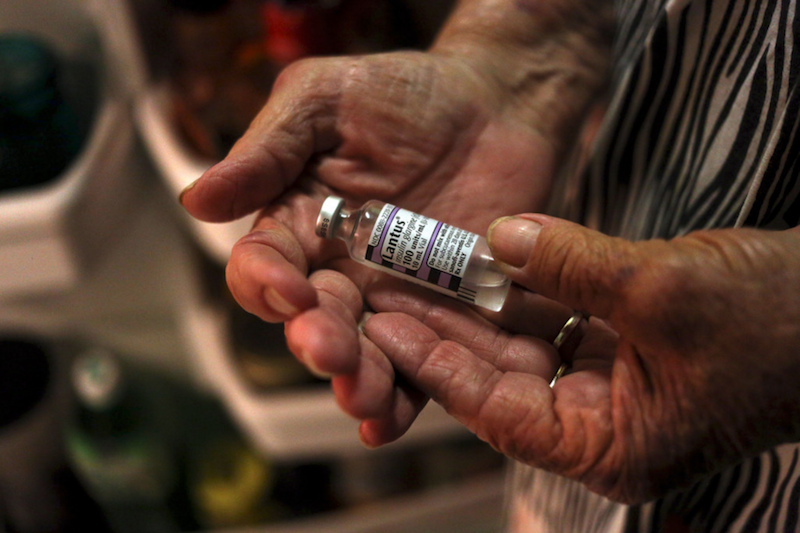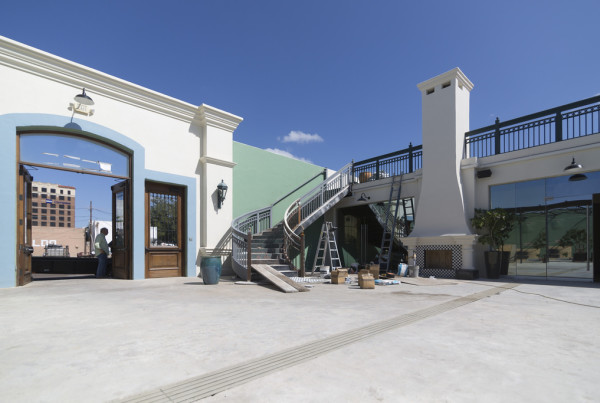This story is part of “Austin’s Eastern Frontier,” a project by KUT, the Austin Monitor and KLRU. This series takes a closer look at Manor’s growth – and the challenges it presents for the town.
People who live in Manor know each other. They spend a good amount of time outside chatting with their neighbors. I found Edaisi Mas after I told her neighbor I was searching for diabetics. He told me to go next door.
“Let me know!” Mas yells out to her neighbor, asking him to keep an eye on the school bus. She’s waiting for her great grandson. Mas, 68, is Cuban and has diabetes. She moved to Manor from Austin with her granddaughter about two years ago.
“I feel fine here but everything is far away for me — like clinics. I have to go to Austin to see my psychiatrist, my dentist, my eye doctor is over there. Everything’s in downtown Austin.”
Her ultrasound appointments are in Austin, too. Her primary doctor is here in Manor, though, and she can walk there from the house.
When her grandson’s bus arrived, they went inside and I saw I had a missed call from Megan McAuley. I had given my card to McAuley’s nurse outside a multi-colored apartment complex for seniors.
I quickly walked over to her apartment to hear her story about having type 2 diabetes. I knocked on the door. She and her dog greeted me.
McAuley, 62, was diagnosed with diabetes almost 20 years ago after a kidney transplant. I found that McAuley, like Mas, is trying hard to manage the disease.
McAuley buys organic, non-GMO food even though she’s on food stamps, and even though she has to go to Austin to get it. She buys vegetables from the local Walmart.
“Before I got the van I rode my tricycle to Walmart, on the service road of 290,” McAuley says. “It was a little bit scary but you know, hey, gotta do what you gotta do.” McAuley moved here from Austin because she likes the small town feel, but she has to keep going to Austin for all of her medical care – including dialysis.
Dr. Alina Ramos at Manor’s health clinic treats patients with severe complications from diabetes — nerve damage, cardiac disease, hypertension. She says one plus of care at this clinic is the solid doctor-patient relationship.
“We don’t want people to necessarily go to the hospital for these illnesses because they see somebody they’ve never seen before and doesn’t know their case,” Ramos says.
The clinic – a CommUnity Care federally supported center – has group classes in Spanish and English for diabetic patients. Staff members can teach patients how to use new medications, but she wishes more specialists would come work in Manor.
Read more of this story on the original site.

















